Train to Busan was a mega hit in 2016, becoming one of the best zombie movies in years; even Edgar Wright called it the "best zombie movie I've seen in forever," and encouraged everyone to see it. There was no shortage of zombie entertainment in the 2000s (and there still isn’t with all of the new Walking Dead spin-offs), but the quality often left something to be desired. A lot of the films either relied too heavily on the same, tired tropes, or just didn’t deliver on their premise, whether it was comedy or straight horror. But Train to Busan brought social commentary back to the forefront of the genre, giving audiences an unexpectedly heart-wrenching story as well as incredibly effective zombie-terror. And it wasn’t just a one-off fluke, either; it seems that director Yeon Sang-ho knew he had something special on his hands from the very beginning; he followed it up almost immediately with a prequel and then a sequel just a few years later.
The sequel, Peninsula, wasn’t as well received as the original, unfortunately, but Seoul Station, the animated prequel released just one month after Train to Busan’s South Korean theatrical debut, received almost as much critical acclaim as the first movie. Seoul Station shows the very beginning of Seoul being overrun by zombies and follows Hye-Sun (Shim Eun-kyung), a former sex worker already struggling before she's separated from her boyfriend, Ki-woong (Lee Joon). Together, they and Hye-sun's father (Ryu Seung-ryong) fight through the infected city to find each other. Beyond being one of the few animated horror films, Seoul Station rises to the same level of insightful social critique as its predecessor. It doesn’t rehash the themes from Train to Busan, but instead takes a wider look at South Korean society, and it does so while still creating characters to which the audience can relate and care about.
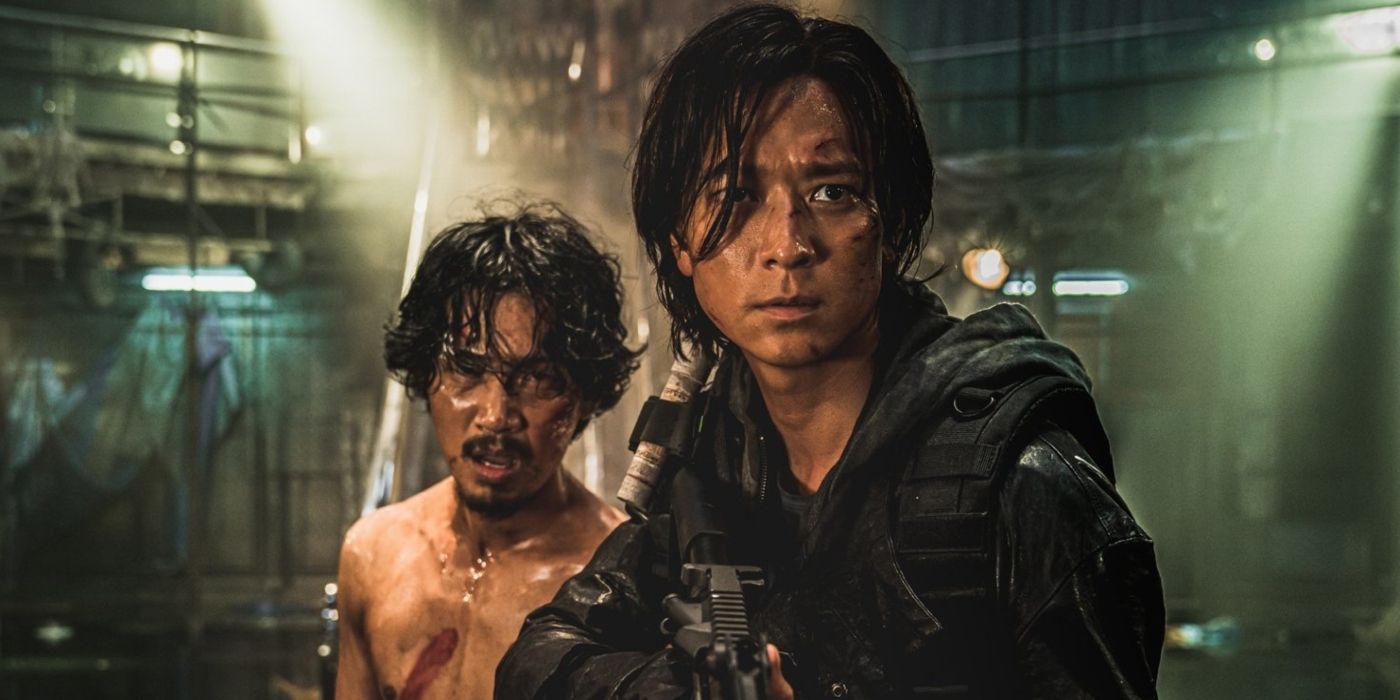 Image via Next Entertainment World
Image via Next Entertainment World
One of the draws of Train to Busan was the way it handled social issues like burnout and contempt between economic classes, and also humanistic ideas like sacrificing for those you love. These points were all made through a pool of characters that were small but well-developed. Seoul Station doesn’t lose any of that sharpness or strong writing, but it doesn’t repeat its predecessor, either. Instead, it expands its scope outside just a few commuters and shows a larger picture of all of Seoul and the rest of South Korea. This gives audiences a damning look at what actually led to the events of Train to Busan. While some characters in the original movie showed disdain for certain groups of society, it was so focused on this small group of people that it only briefly touched on the wider implications. Seoul Station, meanwhile, is very focused on showing that the zombie outbreak raging out of control is a direct result of poor government leadership. Both are strong premises, and because of that precedent, fans were hoping for an equally insightful commentary when it came to the sequel, Peninsula (also marketed as Train to Busan Presents: Peninsula). Unfortunately, the 2020 movie lacked the “bite” (so to speak) of the first two.
Acting as a stand-alone story four years after the initial outbreak, Peninsula follows the story of two men hired to return to zombie-filled South Korea to retrieve $20 million dollars in exchange for half of the money. Combining a heist movie with zombie horror isn’t a bad idea, but Peninsula is surprisingly pedestrian compared to its predecessors; it feels a lot less fresh and more formulaic. Seoul Station has both its animation and its dedication to its commentary on the state of South Korea to make it stand out from the crowd of other run-of-the-mill zombie movies. In fact, it’s so dedicated to building the proper tone that the first zombie attack doesn’t happen until almost the 20-minute mark. Until then, we watch how dismissive city and government officials are towards those in need, specifically the homeless. The main character, Hye-sun, also doesn’t find out about the zombie outbreak until five minutes after the first attack. The movie instead follows her struggling with being a former sex worker, having no money, and fighting with her boyfriend. Yeon Sang-ho once again ensures that the audience understands and sympathizes with his characters before launching into the gory meat of the movie. By focusing on these real-world issues first and foremost, the movie makes it clear that the government has failed its citizens long before they turned into zombies.
'Seoul Station's Main Characters Are on the Bottom Rung of the Ladder
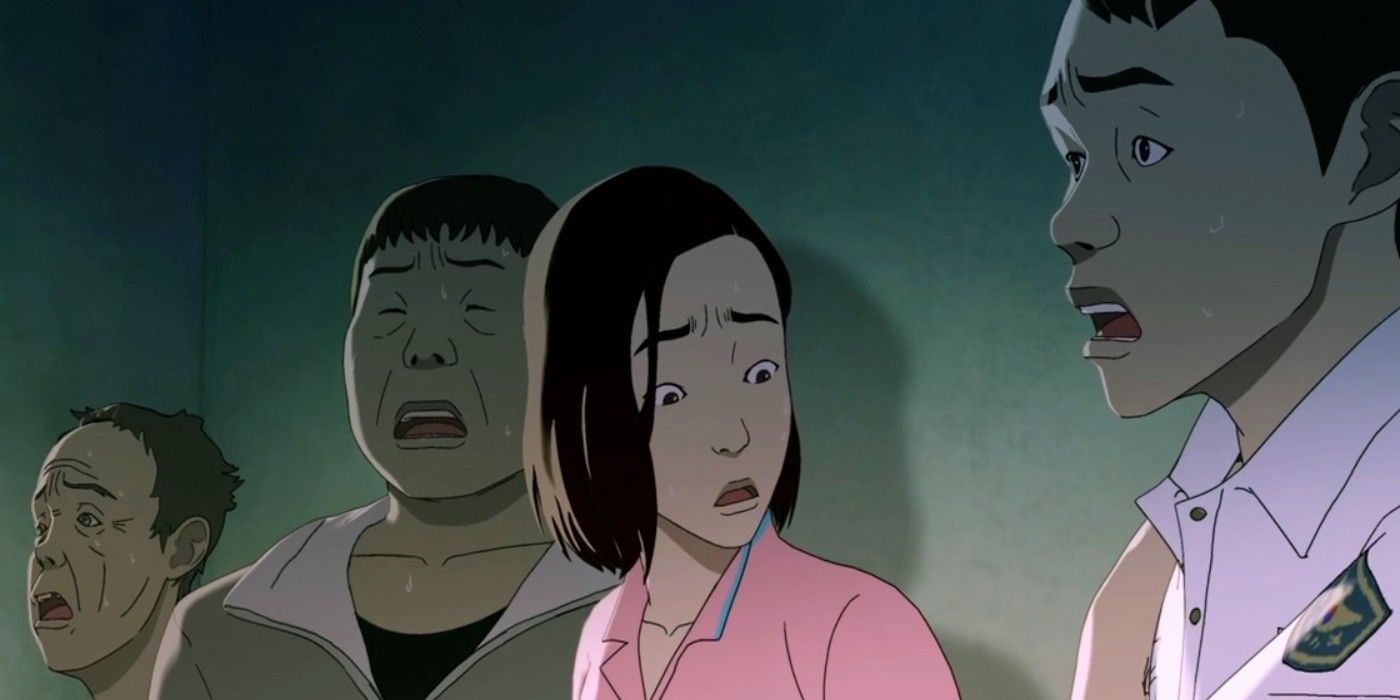 Image via Next Entertainment World
Image via Next Entertainment World
The social commentary of Seoul Station centers its focus around homelessness and prostitution. The main character, Hye-sun, is a former sex worker that escaped from her brothel. She’s trying to establish a steady life with her boyfriend, Ki-woong, but the two are on the verge of eviction. And worse, Ki-woong continually tries to act as her pimp without her consent. Hye-sun is actively trying to avoid sex work, but the people around her still look down at her. Even Ki-woong justifies his own decisions by making her feel guilty about everything he’s given her so far and blaming her for their circumstances – even though his only current contribution to their finances relies entirely on Hye-sun giving up her bodily autonomy. The audience sympathizes with Hye-sun’s unfair situation, but Seoul Station digs even deeper by showing that Hye-sun herself believes in a class hierarchy.
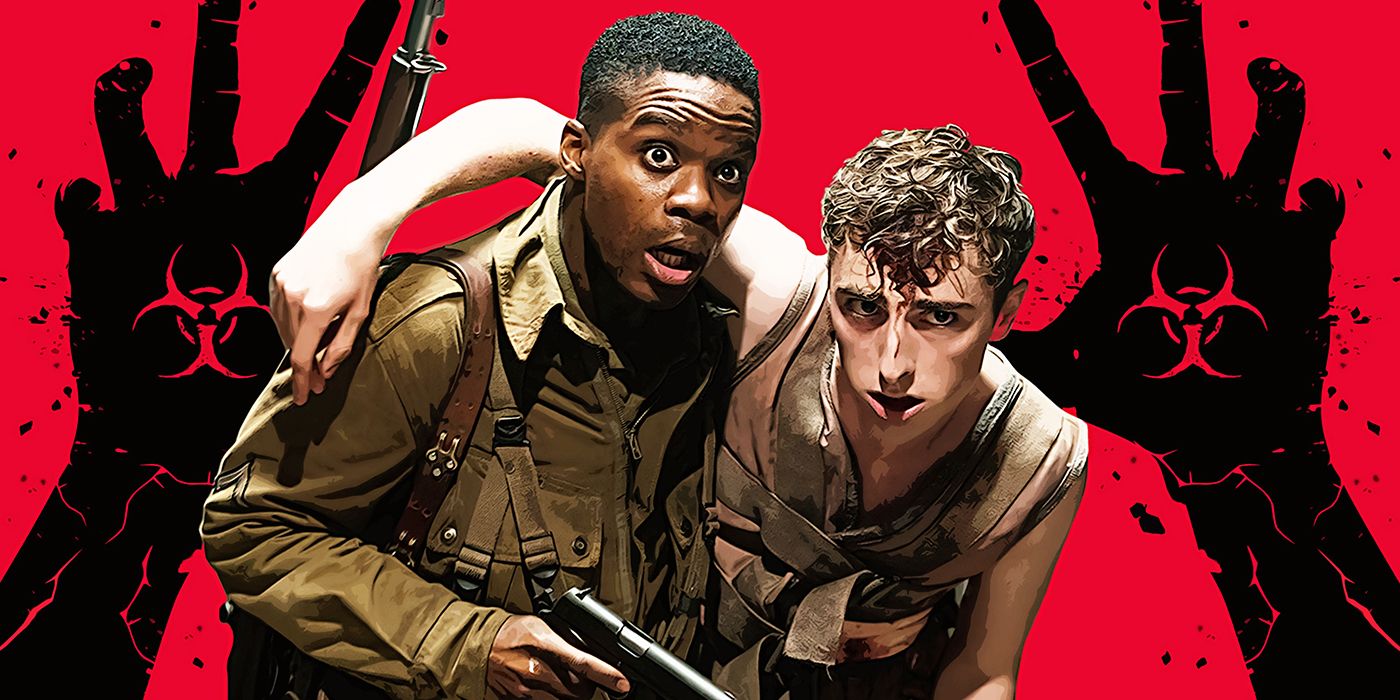
Related
This Overlooked WWII Movie Doubles As a Thrilling Zombie Horror
The genre-bending film appeals to both fans of zombie horror and WWII drama.
When the police refuse to help her and the group of homeless people she’s with, Hye-sun begs that they should at least help her because she’s “not a homeless.” She’s implying that, even as a sex worker, she’s more worth saving than an unhoused person. But considering that she’s on the verge of being evicted herself and also struggles with people looking down on her, it’s a little hypocritical for her to do the same to others. It’s even worse because this group of underprivileged people warned her about the zombies in the first place and let her escape with them; throwing them under the bus isn't exactly a great way to return that favor. And referring to an unhoused person as “a homeless” reduces them from being an individual human with needs to just part of a collective problem. That isn’t to say that Hye-sun isn’t sympathetic; the above conversation is a very brief, very subtle moment from her character. But it does illustrate how harmful ideas about class can be internalized even by those affected by that very thinking.
The Government Turns Against Its Citizens in 'Seoul Station'
Hye-sun may be overall sympathetic, but others completely embody the internal class conflict in South Korea presented in Seoul Station. When the military blocks civilians from escaping from zombies, one man loudly complains about the injustice of the action. Except he’s only affronted on his own behalf; he says that because he served his country and is an upstanding citizen, he’s different from the “trash” around him and should be allowed to escape. He doesn’t know these people and being “different” didn’t keep him from being stuck in the same situation, but he still maintains his superiority.
And when the man can’t escape due to the military blockade, he turns his anger on those around him. He blames their inferiority for his current situation, not the actual government literally blocking the area off. While Seoul Station doesn't blame the outbreak on the government (the origins of the virus in all three movies is left pretty vague), it still portrays them as caring less about their individual citizens' safety than it does about maintaining order. They also take no responsibility for their actions, claiming that the trapped people are "participating in an unlawful assembly," completely ignoring the zombies terrorizing them. It's a scathing indictment of governments who neglect and outright endanger their people instead of protecting them as they should.
'Seoul Station's Ending Is Way Darker Than 'Train to Busan's
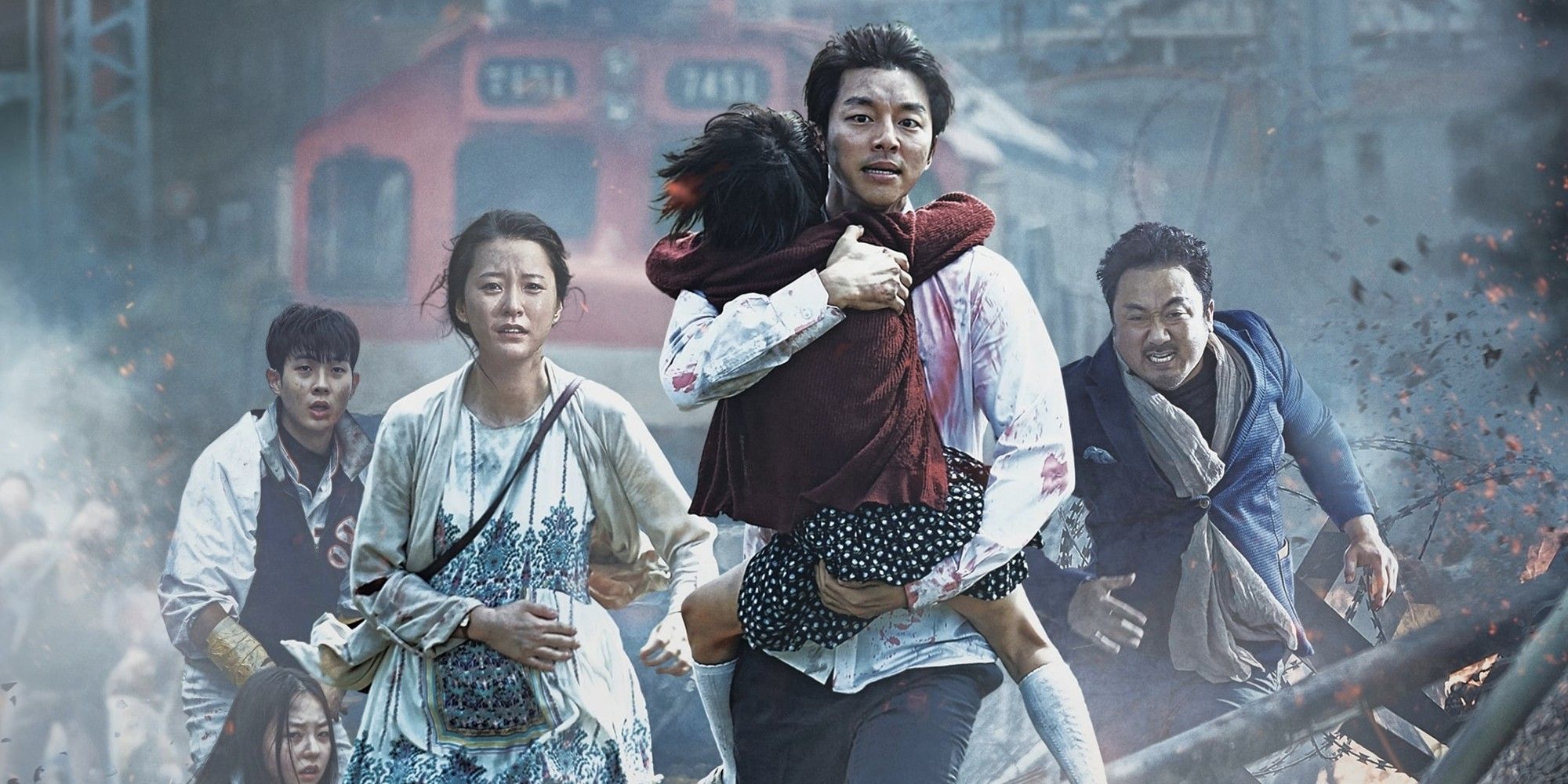 Image via Next Entertainment World
Image via Next Entertainment World
Although heartbreaking, Train to Busan ends with bittersweet hope. The main character rediscovers the depths of his love for his daughter as he makes a tragic decision to help her survive. Seoul Station, on the other hand, leans far more into the bitter side of Hye-sun’s situation. After spending the movie rooting for Hye-sun to reunite with her father and boyfriend, the ending reveals that not everything is as it seems between the three characters, and Hye-sun ends up trying to fight off an attempted rape. It’s a shocking turn for the story and the audience is left on the edge of their seats as Hye-sun tries to get away. Whether or not she does is up to you to discover, but either way, her story is filled with more horror than just that of the zombie outbreak. The only catharsis the movie offers is to allow Hye-sun to get some form of revenge on the person who’s wronged her most, even if it comes at a horrific cost.
Because Seoul Station is a prequel, it's sort of a foregone conclusion that none of its characters are going to come out on top; by the beginning of Train to Busan, Seoul is almost completely overrun by zombies. True, Peninsula shows that things in South Korea got even worse after the events of Train to Busan, but since the first movie was much more about the journey of a select group of individuals, it still managed to be more bittersweet than outright hopeless. Seoul Station, on the other hand, doesn't end with any sort of hope, and combined with the equally heavy social commentary, it makes for a bleak watch. But its insightful themes and realistic characters are still worthwhile additions to director Yeon Sang-ho's cinematic world.
Seoul Station is available to watch on Tubi in the U.S.
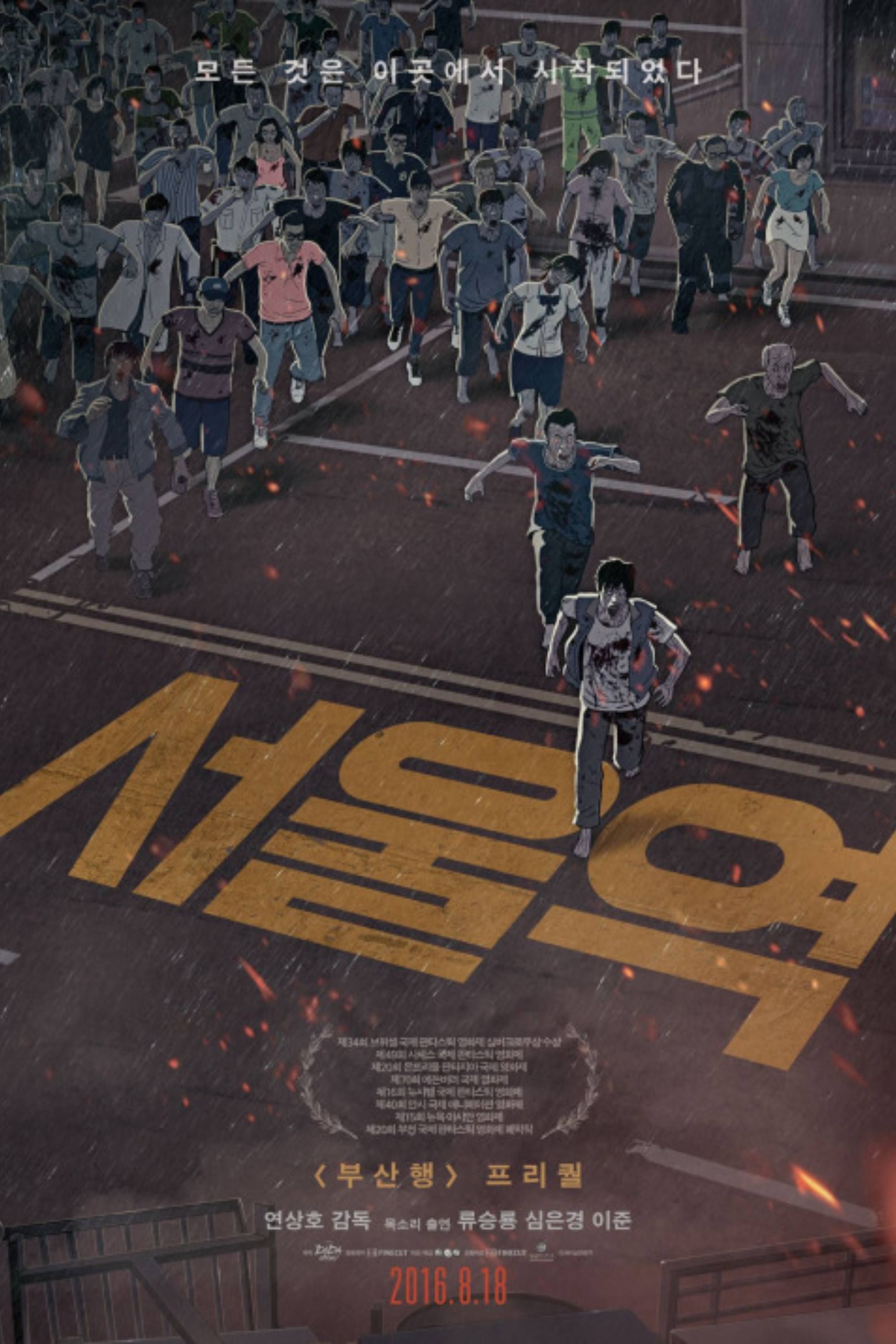
Your changes have been saved
Seoul Station is an animated prequel to the film Train to Busan. It portrays the early stages of a zombie outbreak in Seoul, focusing on a young woman, her father, and her boyfriend as they attempt to escape the chaos and survive the initial spread of the infection in the city.
Release Date August 17, 2016
Director Yeon Sang-ho
Cast Ryu Seung-ryong , Shim Eun-kyung , Lee Joon , Kim Jae-rok , Jang Hyuk-jin , Kim Dae-heung , Yeon Sang-ho
Runtime 92 Minutes
Writers Yeon Sang-ho

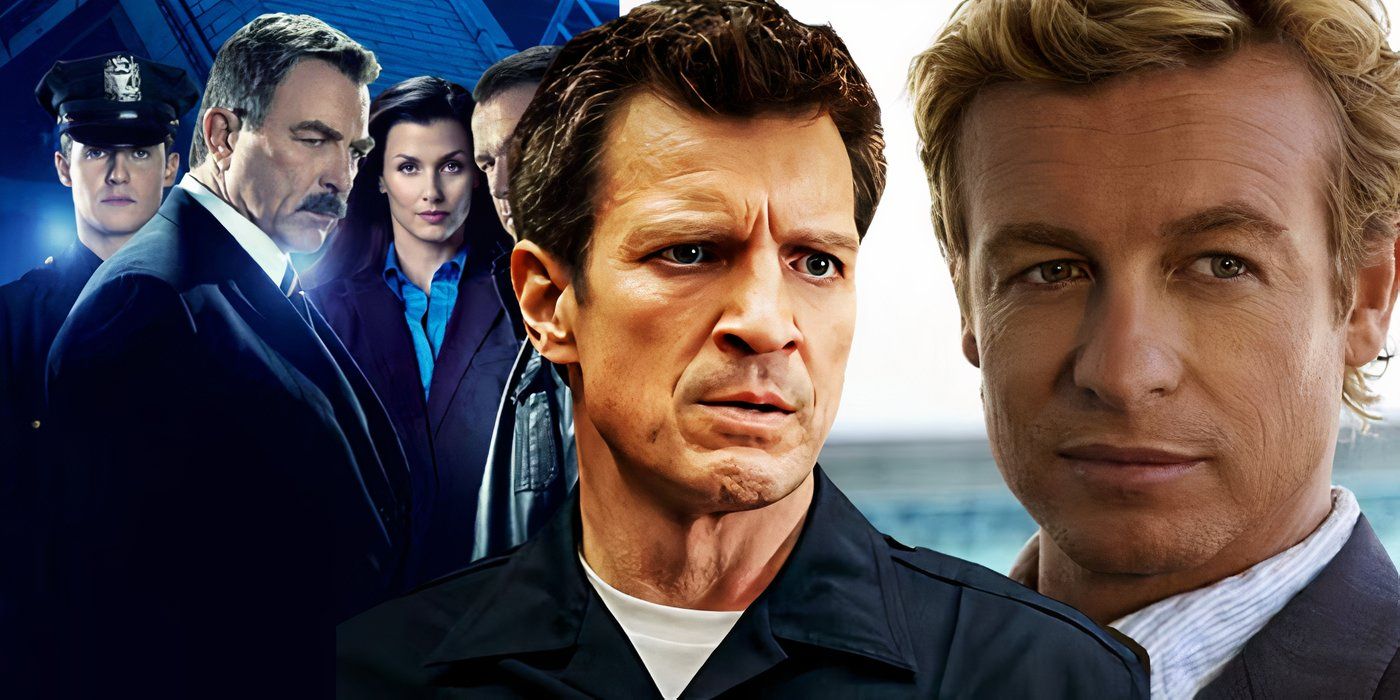
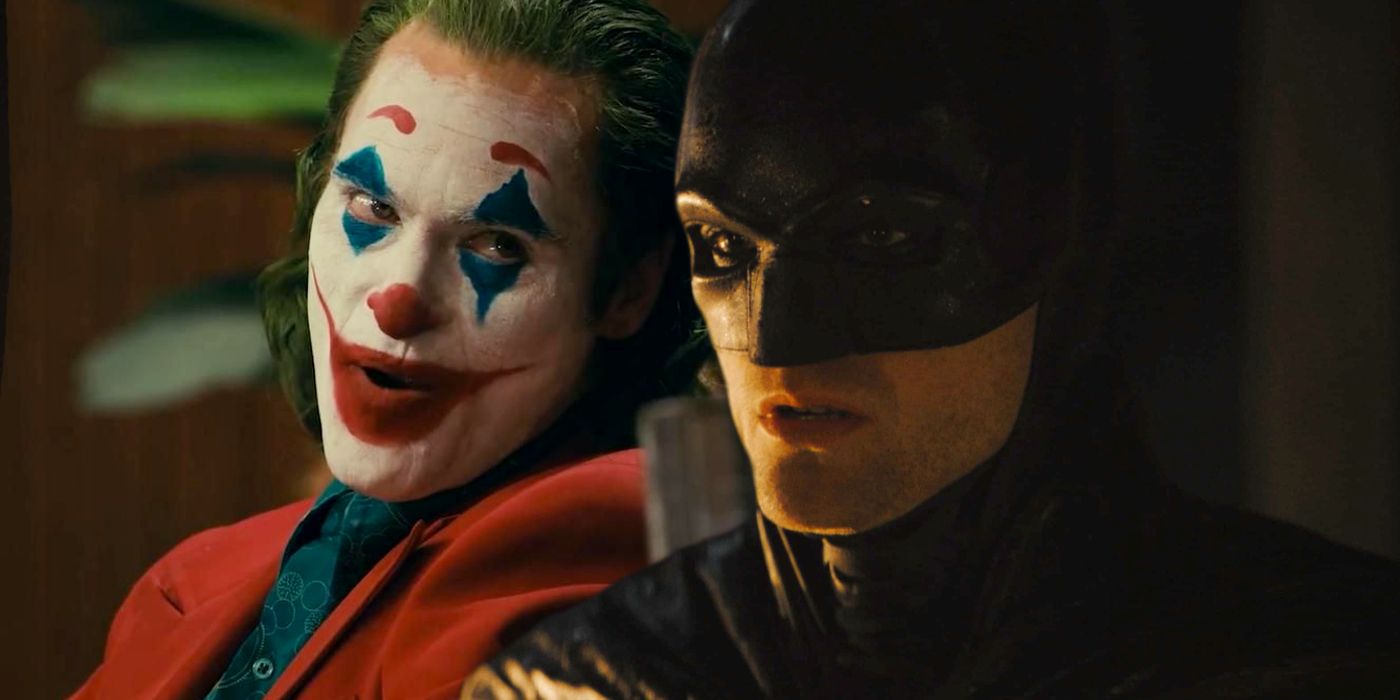






 English (US) ·
English (US) ·